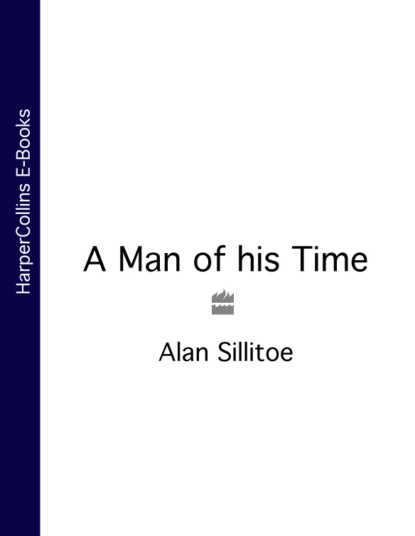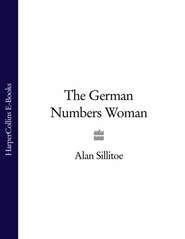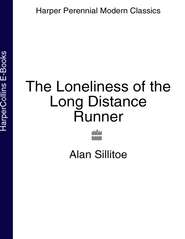По всем вопросам обращайтесь на: info@litportal.ru
(©) 2003-2024.
✖
A Man of his Time
Настройки чтения
Размер шрифта
Высота строк
Поля
And so he should. Every man must know his trade. One of them would already be working on the chap who had jumped from the train near Derby – if it had happened – which he was about to mention but was glad he didn’t, because she said: ‘I’m going to live with my sister. My other possessions will go on by carrier.’
Church books in the portmanteau were too precious to be trusted to the road. Her grief was tempered by an air of tenderness in a compartment growing smaller by the minute, a loosening in her, as if she didn’t know where she was, or what she was doing or, what was better, wasn’t able to know – like the effect of a tot of whisky.
He felt as if alone with a woman in a meadow on a warm spring day, knowing there was only one thing to do before dusk came on. The unexpected sense of levity and opportunity was more than welcome, though he wondered whether it was only in him, at the same time sure a good measure came from her, pious as a dormouse or not.
He held her cold hands to give comfort, as a man should, his as ever hot, large compared to hers, a sheltering stove she couldn’t refuse. ‘What about your children?’
‘There aren’t any, which I suppose has turned out for the best, though I’m sorry the Good Lord didn’t bless me with some.’
Her husband’s spunk had been no good. ‘Was he a great age?’
‘He was twenty years older, a good and upright man.’
He would be, at that age. ‘I’m sure he was.’ Breath and body heat thickened the air between them. If this goes on we’ll need to be prised apart with a chisel. Time to get going, though not sure how she would take it. Moving to her side was a better place to console, seeing as how she needed him, but the goodness of his heart brought on more weeping, which wasn’t the ticket at all.
A passenger looked in for a seat but, unwilling to intrude on mutual and private grief, stepped down. A chink in the blind showed the train steaming along a valley, its whistle permitting them to do what they would, his only hope that no one else would try to get into the carriage.
He secured the blinds, and put his lips to her warm forehead. Hers were moist with a kiss no man could resist, or care what was behind it. A hand around her neck, the other at her well-covered bosom, he took in the rich clean odour of hair, yet held back from going like a bull at a gate, the urge to be fast a sure sign that you must go slowly.
She turned away, but a kiss at the nape of the neck always got them on the melt, Bible books in the portmanteau no defence for a woman’s flesh whose gander was up. A sudden leaning forward told him she knew it was too late to hold back, though any sign and he would have stepped up and asked her pardon. Men were rightly prosecuted for bothering women in trains, and the treadmill wasn’t for him.
A sudden jerk and she crushed herself to him, saying softly: ‘Oh, do take me, then.’
Not to accept her would be unmanly. He lifted her, a free hand drawing his raincoat from the rack to lay on the seat, using all his strength to let her down as if onto a bed of feathers. Clothed arms rustled around his neck, till the seat vibrated under her, carmine features contrasting with the black of mourning as she held out her arms.
No more waiting, he bundled up the complication of skirts, and she drew him through smells of lavender and sweat to the greed of that vital place. All control was given up as if only now able to allow it after her husband’s death. He held back to match her eagerness but she was determined not to let him (which couldn’t be held against her) and spent more quickly even than Leah.
An hour ago they hadn’t known each other, but she must have been half in death for it, the stars fixed that he would be the one to be drawn by her so completely. Glad that she had reason to be pleased with taking him as much as he had taken her, he was also amazed at a coupling of so few words, when with others he’d used many in his persuasions, Nottingham girls brazenly expecting them so as to save, he supposed, what they thought of as their modesty.
Her smile could only be for the ironic twist to his lips while she went back to her status of bereaved woman. The handkerchief that had dried her tears was used to wipe between her legs, as he stood away to fix his buttons. She held out her hand when he moved to put the soiled handkerchief into his bag of tools, demanding it for her reticule, then arranged her dress and sat down. He fetched out a clean one, blessing his mother who had ironed it so well. He looked into her eyes to let her know she deserved more than had been given. Flicking up the blind he was surprised that the world was still the same, yet thinking that if this was travelling by train he wouldn’t mind doing a bit more.
She shaded her eyes as if daylight was too much for them. ‘We’re close to Pontypool.’
Needing to smoke, he took out a packet of Robins, lit one, and dropped the spent match on the floor. He moved to touch her, at the flush knew she wanted him to, but there was only time for a press of hands. ‘I’ll see you walking the street at Newbridge, if I can get out a bit from my work.’
‘My sister’s husband is a Methodist minister, which is why I came third-class. The Good Lord doesn’t like waste.’
‘They’ll keep you locked up, I shouldn’t wonder.’
She arranged her mantle. ‘I’m a widow, so I can walk out on my own.’
‘I shall look for you.’ I could marry her, if I wanted the bother of courting, take an armful of blooms to meet her in-laws, and make them think I’m somebody I’m not. ‘What’s your name?’
She tied the strings of her bonnet. ‘I’m Mrs Dyslin.’
That wasn’t good enough. ‘And who’s she when she’s at table?’
‘Minnie.’
A pretty name. He had given his already, but didn’t want her to forget. ‘I’m Ernest Burton, blacksmith. My brother has a forge near Tredegar Junction.’
‘That’s close to my sister’s.’
‘So I might see you.’
She sat as if never wanting to leave. ‘I feel better than I did an hour ago.’
‘I’m glad. And I’m sorry for your loss, but you’ve got to go on living, whatever happens, that’s all I know.’ He was surprised at offering so many words of consolation. Well, he could talk when he wanted to.
‘You’re a young man.’
‘I’m twenty-one, and that’s not young. Not in my line it isn’t.’ She must be a few years older, but it wasn’t right to ask a woman’s age. Not that it mattered, as long as you gave her what she wanted.
‘I’m going to be the housekeeper at my sister’s, because she’s ailing much of the time. That’s all I can do with my life from now on, though there is a small annuity in my name. My sister has been married ten years, and has four children. Two are young, so I can teach them their letters, make myself useful in whatever way I can. Frank, he’s the minister, will be grateful if I arrange everything to do with the household, I know, which will help me forget my troubles.’
Maybe she’d have a child after what they had done, people thinking that the last act of a dutiful husband had been to lie with her, the timing more or less right. His smile brought one back, a rose opening under the warmth of summer, happiness that would need concealing once she got to where she was going.
The train squeaked alongside the platform at Pontypool Road station, and he reached for her bag, noting how much livelier and more attractive she was after what they had done, back in the world of the much desired where he hoped she would stay, because a woman can look beautiful at any age as long as loving spunk is pumped into her which goes straight to the eyes and makes them glitter with the come-on of a peahen everybody likes to see. There’s only one way to please a woman, and if another woman guesses what it is, I’ll please her as well. Minnie’s brother-in-law expects her to look sad in her black, so I hope he doesn’t wonder what she’s been up to.
He set their bags on the platform, held a hand for her to step down. George would twit him half to death if he could see him acting the cavalier.
‘The platform’s over there,’ she said on seeing him hesitate. ‘The notice says so.’
‘Ah, so it does.’ He kept a footstep behind, something against his habit, since a woman’s place was to walk after the man. When the train set off she was blawting again. Her husband had died three weeks ago, and she was crying because things would seem strange at her sister’s, till she got used to it. Women often cried for less, so he spared another handkerchief to mop the salty waters, feeling in some way responsible for her.
Two long pools flashed by, furnaces and collieries scattered over the valley. A train puffed and billied up a hillside among scarves of smoke. ‘At least you’ve got a sister to go to, and you’ll be all right once you get there. A family is all a person needs.’
She stopped crying. ‘It’s not that.’
He leaned forward to touch her warm cheek. ‘If her husband gets on to you, and makes your life miserable, I’ll have a word with him.’ He showed his fist, hard and worn with work. ‘I’ll look after you.’
She was shocked. Didn’t all women want protection from bullies? ‘It’s not that,’ she said. ‘It’s that I would like to see you again sometime.’
‘And so you shall.’ He was gratified, though not sure it would be possible because George would have him slaving all the hours God sent. ‘Write your address so that I shall know where to find you.’
She took a silver pencil and small pad of paper from her reticule.
‘And if you want to find me, send a note to the post office at Pontllanfraith,’ where George called for his letters. ‘That’ll find me.’
He slipped the note into his lapel pocket, looked at woods to either side of the track. ‘It’ll be the second stop after this,’ she said. ‘My brother-in-law told me in his letter that he would meet me with his pony and trap.’
The departure kiss was as if they were married, or at any rate as if he ought to marry her, though he scoffed at the notion. Her embrace was so passionate because of the loss of her husband, and maybe even of him. It could not be prolonged, though the look of tenderness pleased him. ‘I’ll put your bag on the platform.’
His tall figure leaned from the carriage window watching the brother-in-law greet her with uplifted hat, a slender middle-aged man whose smile was nowhere close to his face, a Stephen Meagrim in a Bible-black garb almost as deep as her own.
Glad to be by himself, he sat opposite a man and woman who fixed him as if knowing he couldn’t be of the area. The man was probably a farmer, and the bedraggled woman one you might see on a winter’s day trudging towards the workhouse. But they smiled, and wished him good afternoon.
Another cutting of green and shale, and the train stopped. The first thought as he stepped down was to slake the windpipe, but he must let George know he had arrived. He looked north, east, south and west and along the lane wondering where the forge could be, feeling more alone than he liked now that Minnie had gone. Seeing a ragged man covered in coal dust, as if he had just crawled out of the earth, he asked the way to the forge.










